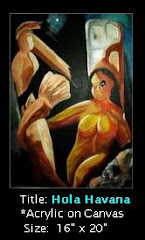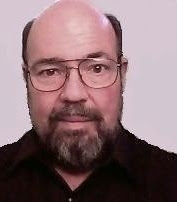
The Armed Forces Radio Services (AFRS) was born in the early 1940s as a morale booster for service men and women stationed around the world.
The first, and one of the most well remembered AFRS radio shows was Command Performance, which began its long run not quite 3 months after the attack on Pearl Harbor.
During WWII, Hollywood turned out for the troops, and there was no shortage of talent eagerly volunteering to appear on Command Performance, or to appear at the Serviceman’s Hollywood Canteen, or to tour military bases, outposts and hospitals.
Bob Hope, Bing Crosby, Al Jolson, Judy Garland, Betty Grable, Frank SInatra, Victor Borge . . . the list of performers is as long as it is remarkable.
Many of the radio shows popular in the states during the 1940’s were transcribed (recorded to a shellac or metallic disk) and replayed over AFRS shortwave system. It was a piece of home, beamed to our armed forces around the world.
In 1942 the Elgin Watch Company sponsored 2-hour Christmas and Thanksgiving radio extravaganzas for the AFRS, which became a yearly event.
We are lucky to have 5 examples – each two hours in length, to remember these wonderful performers by.
Three Christmas and two Thanksgiving Shows.
These recordings are more than 60 years old (and made before recording tape), so the audio quality isn’t perfect . . . but the talent, sentiment, and nostalgia shine through.
You can either listen online, or download them to your computer. First a list of the shows, and then some notes on a few of the performers you will hear.
Elgin-471127_6th Annual Thanksgiving Show 27 MB
Elgin-481125_7th Annual Thanksgiving Show 27 MB
Elgin-441225_3rd Annual Christmas Show 27 MB
Elgin-451225_4th Annual Chistmas Show 27 MB
Elgin-481225_7th Annual Christmas Show 26 MB

Don Ameche was the host of all 5 of these shows, and like many radio stars of the 1940s, he was also a film actor. His film debut was in 1935 in an uncredited role as a prisoner in Clive of India.
Bigger roles awaited, and in 1938 he would star with Tyrone Power and Alice Faye in In Old Chicago. Later that year, the same three would appear in Alexander’s Rag Time Band.
The following year Ameche would play D'Artagnan in The Three Musketeers and the lead in The Story of Alexander Graham Bell. Heaven Can Wait, Swanee River and dozens more would follow.
Although a popular radio performer during the early 1940s in such shows as The First Nighter Program, Family Theater and the Betty and Bob soap opera, it would be his teaming with Frances Langford in The Bickersons that would be his biggest radio hit.
See Not Exactly Ozzie And Harriet for classic episodes of the Bickersons.

Vera Vague, who appears on several of these shows, wasn’t a real person. She was the persona of actress Barbara Jo Allen, who invented the shrill-voiced, man-hungry spinster `Vera Vague’ after sitting through an interminable lecture at a PTA meeting on world literature by a prototype for the character.
Although primarily a radio performer, Barbara Jo Allen had also appeared in the movies, but after the early 1940s she was so closely associated with the Vera Vague character she could do little else.

Ginny Simms was a popular Big Band singer of the 1940s, primarily with the Kay Kyser Band. Her biggest hits included "Deep Purple," "Indian Summer”,"I Can't Get Started," "I Love Paris," and "Stormy Weather."
A popular radio songstress, she also appeared in a handful of movies during the late 1930’s to mid-1940s, first in That’s Right – You’re Wrong in 1939. She appeared in the Abbott & Costello movie Hit The Ice, and the Cole Porter Bio-pic Night & Day.
Cass Daley was a comedienne and singer who worked on stage (1936-37) Ziegfeld Follies, movies The Fleet’s In (1942) and Star Spangled Rhythm (1942), and on radio as a cast member of The Fitch Playhouse and then host of her own show, The Cass Daley Show.
When radio declined in the 1950s, so did Daley’s career. She attempted a comeback in the 1970s but died when she tripped and fell onto a glass table, severing her carotid artery.







No comments:
Post a Comment